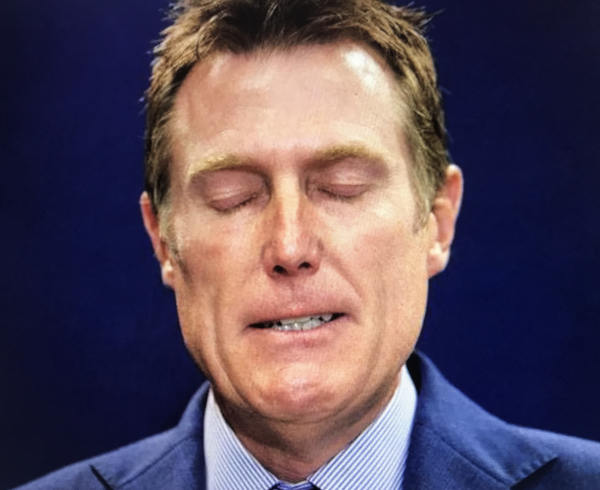“The system is broken. It is unfathomable that we are still having to fight this stale, tired fight.”
From Brittany Higgins’ speech at Canberra’s ‘March 4 Justice’ last Monday.
A short-term problem to be politically managed? Not likely! Rather we are watching a rare generational moment where a convergence of events may have produced an historical opportunity to achieve real long-lasting social change. These key events include –
- The public exposure of Brittany Higgins rape in Parliament House
- Investigation into High Court ex-judge harassing female associates
- Alleged historical rape by Attorney General, Christian Porter, on or about 10 January 1988
- 100000 + attend March 4 Justice rallies
- An online petition started by Chanel Contos in Sydney reveals a multitude of testimonies of sexual assault in single sex private schools.
- Compelling speeches delivered by Brittany Higgins at the Canberra march and by Grace Tame (Australian of the Year) at the National Press Club
- Two ABC TV programs on Four Corners – ‘Inside the Canberra Bubble’ and ‘Don’t Ask, Don’t Tell’
- The PM choice of words, saying such protesters would be “met with bullets in other countries” was ill-considered and drew intense public criticism
- Discrimination Commissioner, Kate Jenkin’s report ‘Respect at Work’ containing 55 recommendations still sitting on Porter’s desk in Canberra with no response after more than a year
The zeitgeist resulting from this convergence was palpable – women were demanding leadership to satisfy their long-awaited cry for equity and justice. It was time, an opportunity for the PM to become a national leader, to finally stand up. But Morrison is no Keating or Howard, he refused to address the march and then cut off the reading of Higgin’s rally speech by the Opposition Leader and closed down Parliamentary Question Time. Such is the character of the man who ‘doesn’t hold the hose’!
In the midst of this maelstrom was one person, the Attorney General, Christian Porter. Just hours before the marches began he launched defamation proceedings against the ABC, and journalist Louise Milligan.

Despite its apparent complexity, the turmoil can be distilled down to four issues –
- The unresolved cri de coeur from the women of this country
- A trial for rape that can never happen
- Defamation proceedings launched by Porter against the national broadcaster
- A toxic workplace culture enveloping the Australian Parliament
In an effort to ‘politically manage’ this evolving pandemonium of conflicting vested interests,the PM employed the politician’s standard tactic of closing down public discussion by pointing to the running of a separate legal process (the defamation case) and that any furtherance of a rape charge faced a NSW Police impasse eg the victim is dead, an
apparent lack of interest by police in pursuing the rape allegations, adopting the usual covid excuse for inaction etc. In other words, the political strategy was to close down the debate and promote the abortive police process – and hoping people have short memories!

But they didn’t! Popular sentiment sensed that justice had not been done, the dead victim had not received the legitimacy of fair treatment. That strong sense of victim injustice was contagious, it became intermingled with the broader underlying issue of female oppression in our patriarchal society, the angry reaction to a tawdry history of misogyny and sexual assaults and harassment, and culminating in the odious workplace culture pervading our
Parliament.
The various interests, including the dead woman’s friends, now pursued the argument that an independent investigation into whether Porter was a “fit and proper person” to perform the role of Attorney General would be an appropriate response and thereby bypassing the roadblocks raised by the PM. A non-criminal process similar in nature to the High Court arranged investigation into ex-High Court judge Dyson Heydon’s behaviour.
In an effort to deflect this initiative, it was argued first by Porter ‘if I were to resign….there wouldn’t be much need for an Attorney General anyway, because there would be no rule of law to protect in this country’.This rather bizarre statement of little value was later resorted to by Morrison to support his assertion that no avenue to investigate the alleged rape existed other than by the NSW police in accordance with criminal law. To have a further inquiry would be contrary to the rule of law.
Certainly the ‘rule of law’ is an elusive concept, with a derivation more philosophical and political than legal. Essentially it says a state should be governed by a system of laws rather than the whims of unaccountable authoritarianism and that the state and its citizens can only act when authorised by the law. Its development presumes that all citizens participate in the process of developing the law – thus the legitimacy of the law is grounded in the consent of the governed. Justice Francois Kunc of the NSW Supreme Court says there is no “rule of law” that would prevent an inquiry into whether Christian Porter is a ‘fit and proper person’ to be Attorney General. Writing in the Australian Law Journal he said such an inquiry would not only be in accordance with the rule of law but would “enhance it”.

However, the events of the last few weeks have illustrated clearly how far we are from upholding a substantive version of a rule of law in Australia that is ‘just’ – both morally and lawfully – for women.
In Australia, up to 1 in 5 girls will be sexually assaulted. Of women over 15, 1 in 2 report being sexually harassed. The aged care Royal Commission advise that there are 50 assaults a week in the aged care system. On average one women a week is murdered by her current or former partner.
The data is damning but what is even more compelling is the recent real-world experience of Brittany Higgins when encountering the legal process. Here was a white, middle-class woman, well-educated and extremely well-connected, yet received no protection under the law. What chance is there for women without these advantages to obtain justice? Clearly the legal system – at least relevant aspects of the law – are rigged against women.
It explains why such a small percentage of victims report sexual assaults to police, and that’s related to the fact that so few of those reports result in prosecution and even fewer in a conviction.
If, as has been suggested, the zeitgeist has been transformed by the eruption of women’s anger and rage. How this moment will play out remains unknown, certainly difficult to predict.
Have we reached a tipping point in social relations? Is a culture change in the offing? Despite all the anger and rage, a realistic assessment suggests a return to ‘normal’ is likely when the cacophony dies down, unless meaningful structural changes to our unjust rule of law are not simply announced but actually implemented. Social science research has long shown that structural change forces behavioural change and it is behavioural change which
drives culture change – that is the sequence of effective change.
Perhaps a start would involve the PM cease engaging in political games, actually understand the issue, and reading Kate Jenkin’s “ Respect at Work” report, now over one year old, and collecting dust, lying unopened on the Attorney General’s desk.
Graham Jones | 29/03/2021

